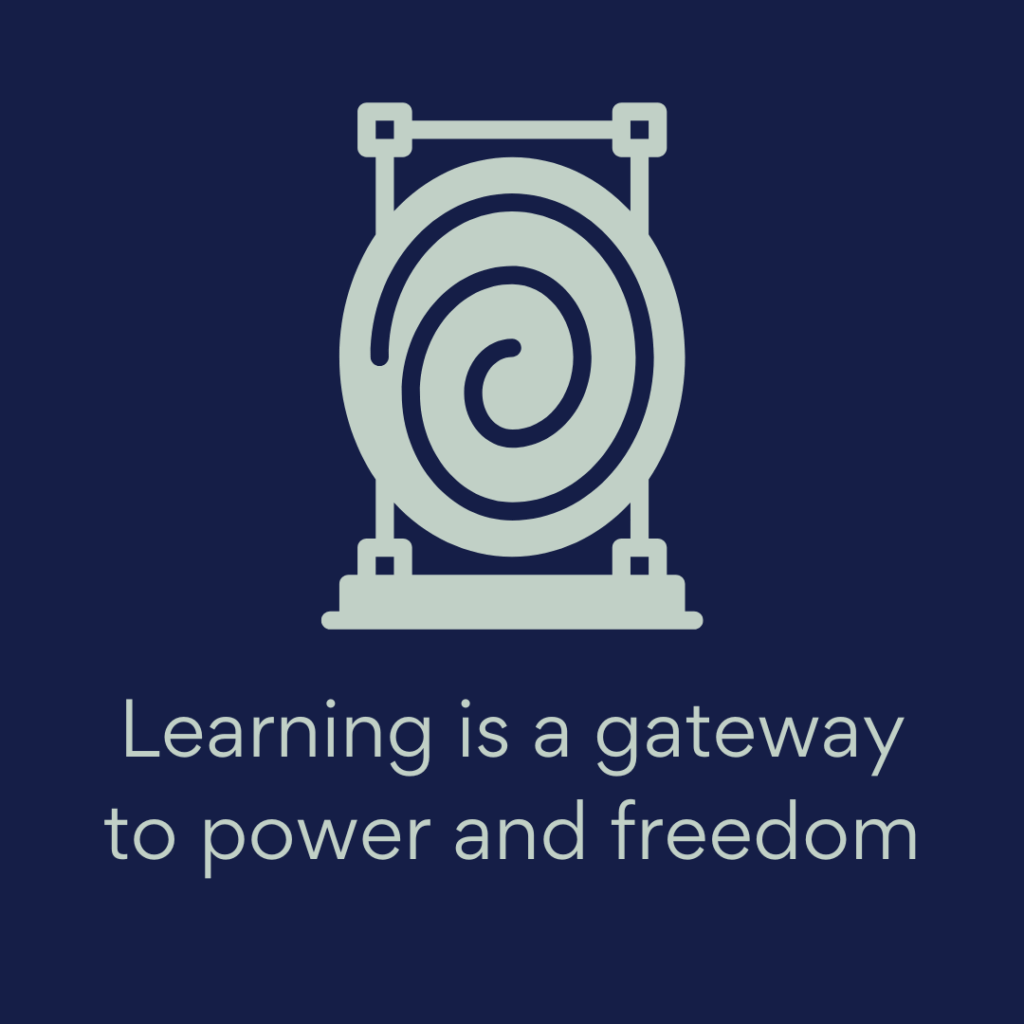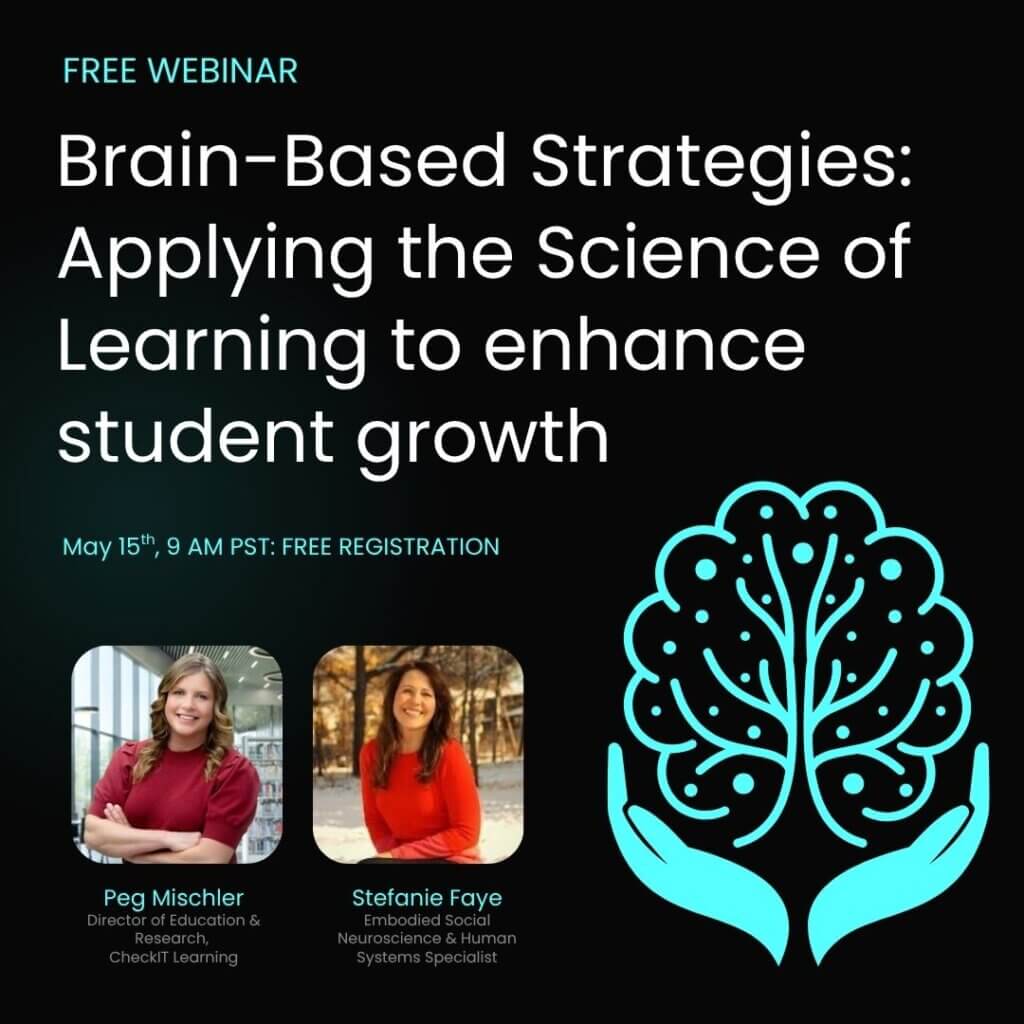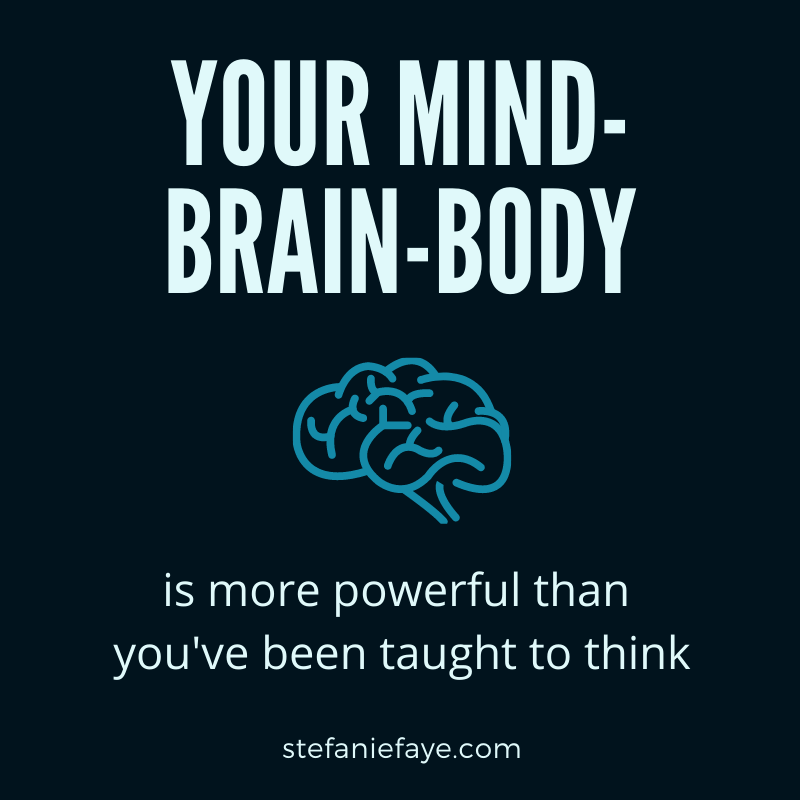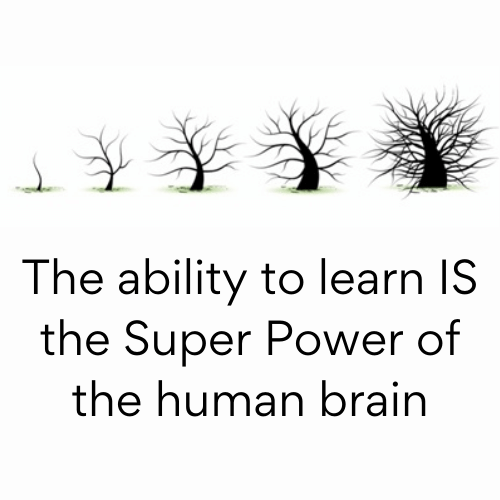“One thing about human intelligence is absolutely certain: it is malleable, meaning it can be changed through exposure to new information or even by looking at what you already know in a new way. There is no limit to what you can learn, and, contrary to what some may think, nobody's brain has ever been "filled."
-Terry Doyle and Todd Zakrajsek, The New Science of Learning: How to Learn in Harmony With Your Brain

Learning is a gateway to power and freedom.
Learning is a gateway to power and freedom
Learning increases our degrees of freedom by giving us new ways to move, communicate and adapt to challenges and capitalize on opportunities.
What and how we teach children and young people about themselves and the world is a sacred process that is not honored in how typical classrooms are run. I have seen too many kids begin to believe that something is wrong with them or that they are unable to learn - because of the teachers’ and education system’s lack of understanding and awareness about how to truly ignite unique human genius.
The world misses out on what the next generation has to offer when we try to force human intelligence into a standardized process.
On a deeper level, because of ineffective and outdated education models, I think many of us were not given a chance to truly tap into our unique brilliance, and the effects of this linger in us today.
The human superpower of learning is restricted by restricted by outdated ideas about consuming information without understanding how we apply to it Real Life*
We have a chance to change all of that. We can do this with neuroscience-informed, embodied, emotion- and sociality-based ways of helping learners tap into their genius potential. Learning is meant to help us explore, investigate and interact with the world - and adapt as needed. We have a chance, in our hyper-connected world, to support teachers on that journey in ways that are more sustainable, efficient, and fulfilling for them. (see book and research article recommendations below)
We can do that by understanding our outdated paradigms and expanding into new embodied, social neuroscience-informed perspectives (Immordino-Yang, 2016, 2019) that connect our bodies to our brains, ourselves to others, and our sense of well-being, adaptation and innovation to our learning experiences.
*see this research by Gottlieb and colleagues on transcendent thinking (also coming soon on the podcast)

WEBINAR: Brain Based Strategies to Enhance Learning and Growth
Join me and Peg Mischler, Director of Education & Research at CheckIT Learning, longtime teacher educator, former district leader, science and special education teacher for a FREE WEBINAR on Brain-Based Strategies to enhance learning and growth.
Click here to register and learn more!
Date: Thursday May 15th at 10 AM Mountain Time
Cost: FREE
This workshop is geared particularly to teachers in the education system, but I believe learning and the brain is a topic that is relevant to all of us. This is especially true if we are coaches and leaders…
LEARNING IS HOW HUMANS CHANGE.
And understanding what optimizes and primes the brain and nervous system for learning is relevant to anyone who is seeking a higher level of well-being, purpose, and fulfillment.
“every human has the built-in power to improve, to change for the better, to significantly restore and often to recover. Tomorrow, that person you see in the mirror can be a stronger, more capable, livelier, more powerfully centered, and still-growing person.”
― Michael Merzenich, Soft-Wired: How the New Science of Brain Plasticity Can Change your Life
All great teachers are also exceptional learners
- and this process of exceptional, deep learning is what makes them great teachers. Deep, impactful, embodied learning is extremely difficult to do with outdated paradigms, and no personalization or context-sensitivity to what the mind-brain-body actually needs to optimize its learning potential.
I want to keep reiterating this because so many of us went through that education system. It means that there is so much untapped potential about what our talents really can achieve and what they are in the first place.
The antidote is to get out there and get your hands and bodies learning new things - moving and creating. This is how you will get in touch with these deep, embedded potentials that are lying dormant within you now. You won’t be able to access your highest intelligence without this -without getting into the world and experiencing it live, in the flesh, with multiple depths and dimensions, textures, smells, sights, sounds, etc.
True, authentic learning is about tuning in to ourselves and what our body and internal & external environments are telling us. It’s a very individualized process that cannot be standardized in a factory model way.
To help our world navigate through change and innovate out of problems we’ve created, we need to invest not only in our own learning, but also in the minds of generations younger than us, and those still to come.
When we tune into WHY we want children (and ourselves) to learn... we can align with new ways of learning that are unique, dynamic and reflective of the neuro-mechanics of how human minds achieve their highest functioning. The highlights of my life have been working with young people and watching them light up as they recognize their capacities to learn.
Coming soon on the podcast!
Very excited to have one of the most innovative neuroscientists in the realm of education and learning on the podcast! (this interview will be up March 27th). We discuss multiple levels of teaching (from Transformative to Transactional) and multiple brain systems involved in helping teachers and students tap into higher levels of learning and growth.
In the meantime, check out the incredible guests I've had on the podcast recently, including:
Dr. Mathilde Cerioli: Artificial Intelligence, Disembodied Wisdom
Dr. Allan Lightman: Cerebral Entanglements
Research article and book recommendations:
Colvin, R. Optimising, generalising and integrating educational practice using neuroscience. npj Science Learn 1, 16012 (2016). https://doi.org/10.1038/npjscilearn.2016.12
Gotlieb RJM, Yang XF, Immordino-Yang MH. Diverse adolescents' transcendent thinking predicts young adult psychosocial outcomes via brain network development. Sci Rep. 2024 Mar 15;14(1):6254. doi: 10.1038/s41598-024-56800-0.
Immordino-Yang, M. H. (2016). Emotion, Sociality, and the Brain’s Default Mode Network: Insights for Educational Practice and Policy. Policy Insights from the Behavioral and Brain Sciences, 3(2), 211-219. https://doi.org/10.1177/2372732216656869
Immordino-Yang, M. H., Darling-Hammond, L., & Krone, C. R. (2019). Nurturing Nature: How Brain Development Is Inherently Social and Emotional, and What This Means for Education. Educational Psychologist, 54(3), 185–204. https://doi.org/10.1080/00461520.2019.1633924
Books:
Emotions, Learning, and the Brain: Exploring the Educational Implications of Affective Neuroscience: https://wwnorton.com/books/9780393709810
With her signature talent for explaining and interpreting neuroscientific findings in practical, teacher-relevant terms, Immordino-Yang offers two simple but profound ideas: first, that emotions are such powerful motivators of learning because they activate brain mechanisms that originally evolved to manage our basic survival; and second, that meaningful thinking and learning are inherently emotional, because we only think deeply about things we care about. Together, these insights suggest that in order to motivate students for academic learning, produce deep understanding, and ensure the transfer of educational experiences into real-world skills and careers, educators must find ways to leverage the emotional aspects of learning.
Soft-wired: How the New Science of Brain Plasticity can Change Your Life : https://www.michaelmerzenich.com/bio/
"Your brain - every brain - is a work in progress. It is 'plastic.' From the day we're born to the day we die, it continuously revises and remodels, improving or slowly declining, as a function of how we use it." ~ Michael Merzenich
The Beginning of Infinity by David Deutsch daviddeutsch.org.uk
"[...] human bodies (including their brains) are factories for transforming anything into anything that the laws of nature allow. They are 'universal constructors.'"- David Deutsch, the Beginning of Infinity, p. 59.
Life 3.0: Being Human in the Age of Artificial Intelligence by Max Tegmark: https://space.mit.edu/home/tegmark/
“Life 1.0”: life where both the hardware and software are evolved rather than designed. You and I, on the other hand, are examples of “Life 2.0”: life whose hardware is evolved, but whose software is largely designed. By your software, I mean all the algorithms and knowledge that you use to process the information from your senses and decide what to do [..]” - Max Tegmark, Life 3.0
The Strange Order of Things by Antonio Damasio: https://www.antoniodamasio.com/
"Feelings can annoy or delight us, but that is not what they are for [...]. Feelings are for life regulation, providers of information concerning basic homeostasis or the social condition of our lives." Damasio p 139




